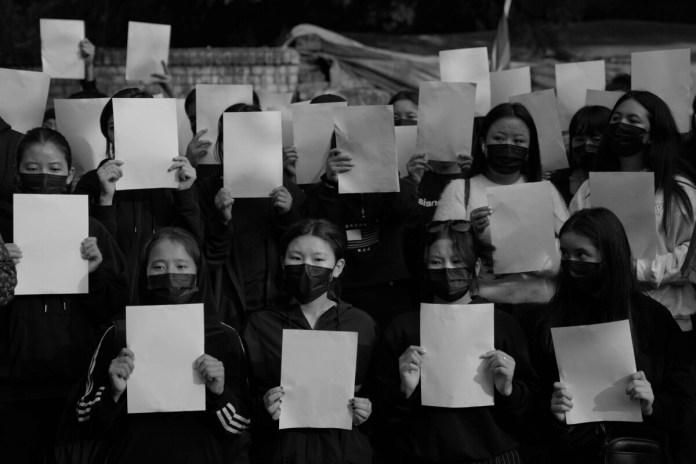
Of course, police brutality against peaceful protesters in China and elsewhere is reprehensible and condemnable. When it happens in China, it is particularly heinous—at least from the point of view of Western mainstream media and politicians who are particularly concerned about human rights in China.
Only exceptionally does a Western mainstream media outlet—such as the American magazine The Atlantic, which certainly cannot be accused of being “China-friendly”—raise the crucial question, “How many Covid deaths will Chinese protesters accept?” and declare, “without these strict measures in place, a massive wave of new Omicron infections could overwhelm critical-care units and leave 1.55 million people dead.” Indeed, China’s health care system is one of the weakest, with one of the lowest hospital and ICU rates in the world. It could be completely overwhelmed by an onslaught of patients, especially elderly patients.
Although recommended by the government, covid vaccination was never mandatory in “dictatorial” China.
Thus, the Chinese government once again shows its “brutal” face, in which it “largely peacefully dispersed” most demonstrations against the previous strict Covid restrictions in 17 cities, as even CNN reported on the ground. The “regime” has already made a bad name for itself by brutally breaking up cartels and monopolies (in the interest of unasked consumers and workers) and forcing the poor rich to pay taxes to get closer to its goal of better wealth distribution, which can be perceived as repressive—especially by billionaires like Jack Ma, the “Jeff Bezos of China,” who has reportedly been pressured, for example, to sell the South China Morning Post and other media he owns.
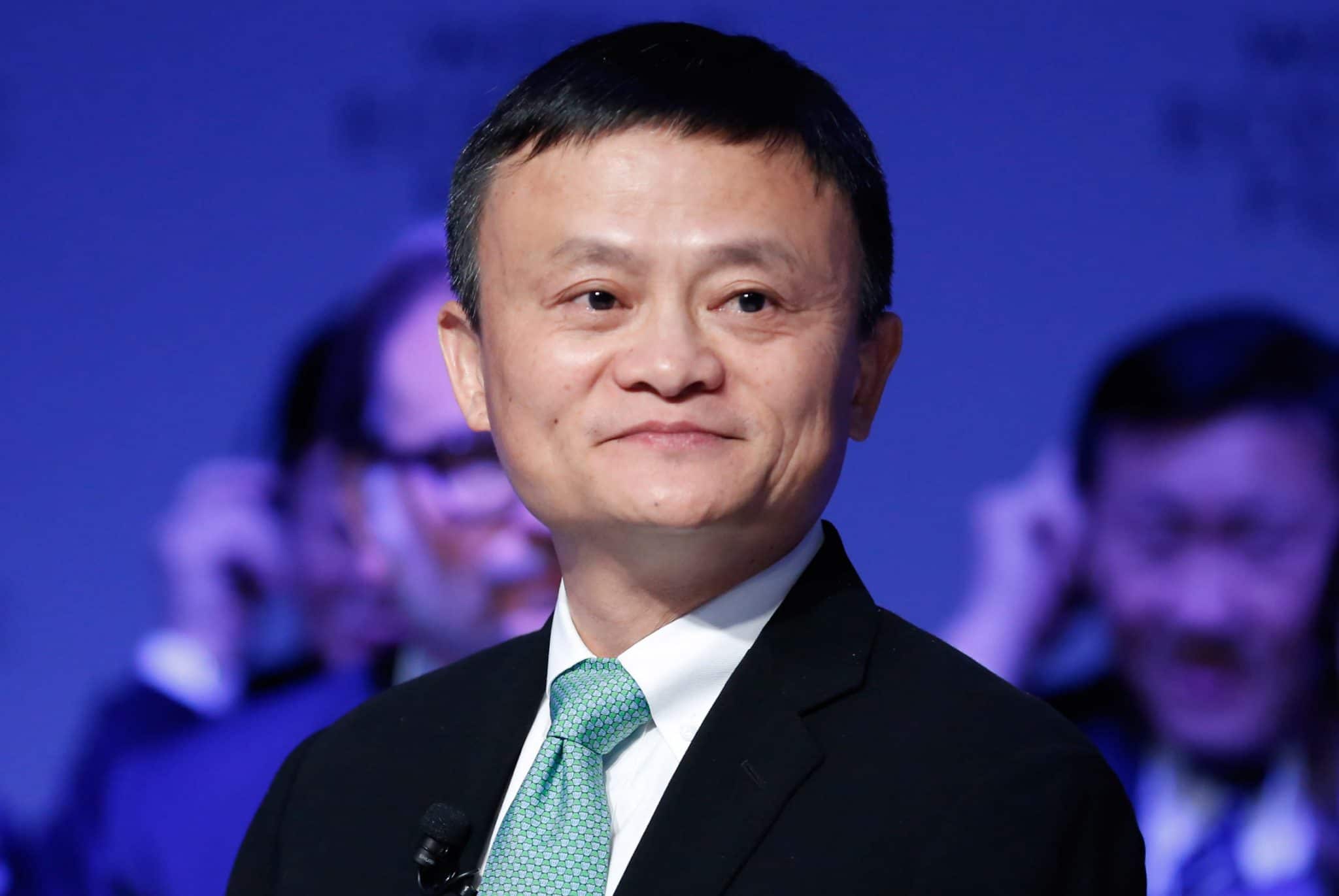
Western double standards
Jeff Bezos has it better in America: He can keep The Washington Post and his government will not prevent him from paying little or no taxes. But that’s not all: Jeff Bezos wants to, and is allowed to, stain his hands with blood from the billions in contracts he receives from the U.S. Department of Defense—something denied to Jack Ma and his ilk in China: The recently deceased former Chinese President Jiang Zemin saw, as one of his greatest achievements, “banishing the military from the economy.” In this way, he at least prevented the rise of another all-powerful military-industrial complex and made the world a little safer.
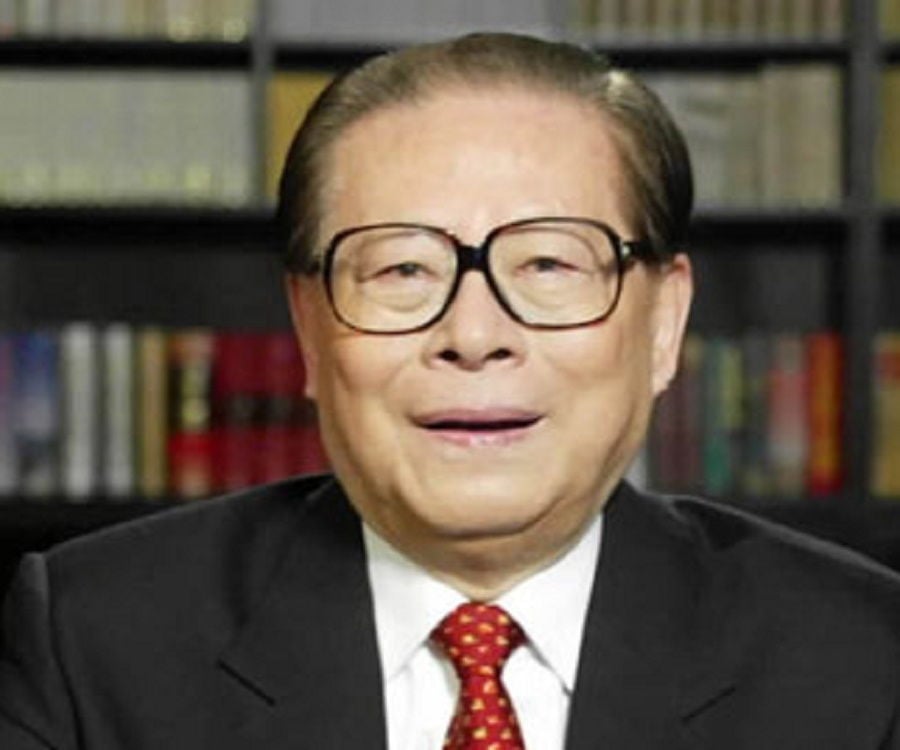
Are protesters in China disappearing into concentration camps?
Western media consumers must fear the worst for Chinese protesters: The media hypes the protests against the strict covid measures and suppresses the fact that there are always protests in China. Usually, these protests result in the authorities making adjustments in the interest of the protesters. Perhaps surprisingly to readers, authorities in China are more receptive to criticism than those in the West. When millions take to the streets during many months in America to protest police brutality, it does not trigger police reform there. When the masses in America protest against an overbearing Wall Street, nothing happens either.
But when a few thousand dissatisfied people take to the streets in a country with 1.4 billion inhabitants, this is of course of the utmost importance for the Western media. The mentioned merit of the late statesman Jiang Zemin, on the other hand, is not worth a line!
A lesson about Western media: When there are seemingly no protests, they say China is authoritarian and does not allow protests. When there are protests, China is suddenly on the verge of collapse. Don’t expect fact-based, nuanced reporting from media embedded in Washington’s anti-China information war!
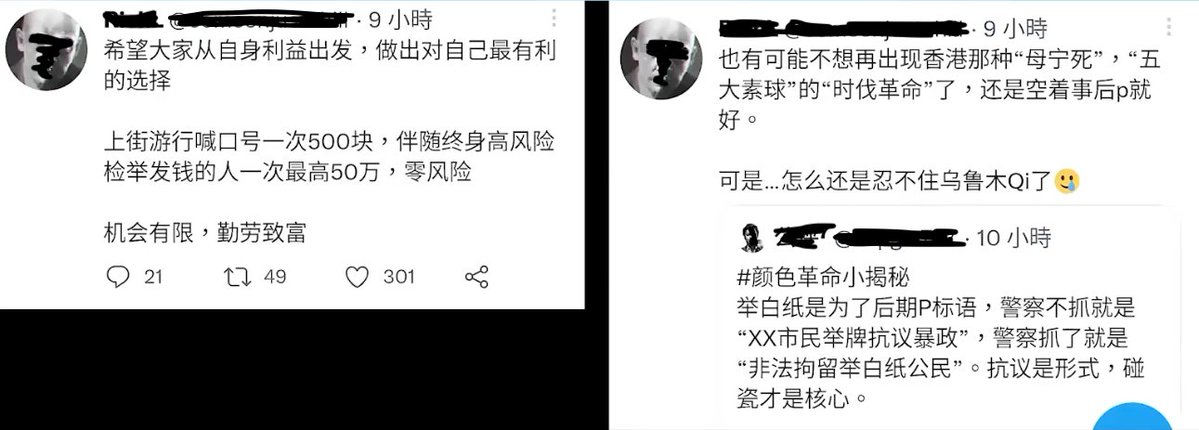


You may wonder why the protests in Urumqi, where a fire broke out in a high-rise building, were about legitimate demands and why the simultaneous protests in Shanghai, which began near the U.S. consulate, were about regime change.
Using large Telegram accounts, certain organizers of the demonstrations coordinated their efforts, using the same tactics as the U.S. intelligence-backed Hong Kong protests in 2019. People were recruited to hold white papers and were paid $200 per head. They were to protest the Chinese leadership and make the protests appear much larger than they were. Most of the recruits were from Hong Kong and Taiwan. Their accents quickly gave them away. The mainland Chinese were not buying it.

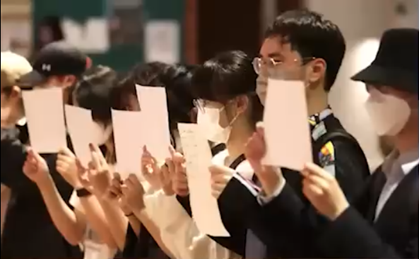
–
Acquaintances of mine in China, who were also fed up with the restrictive Covid regulations, told me during the protests that they feared that the authorities, who take legitimate criticism seriously, might overreact and open the floodgates too quickly, which would lead to an overload of the health sector and might, among other things, trigger a whole series of long-Covid cases.

Western politicians and media “warn” the Chinese government or give it “good advice”—selflessly, of course, as always. Of particular interest in this context are the remarks of Rishi Sunak, the British prime minister of Indian descent: “Instead of listening to the protests of its people, the Chinese government has decided to continue to crack down,” he rebukes.
Interestingly, just two days after this criticism, he announced the following measures to crack down on “illegal” protests in his own country:
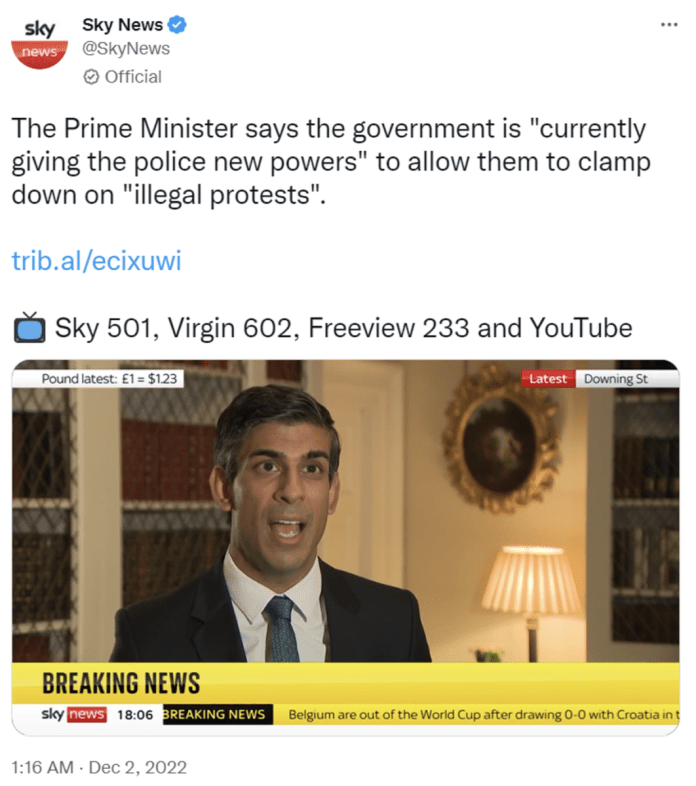
However, the relationship between the United Kingdom and China is a very special one: In the 19th century, Britain was a “narco-state,” a country that financed itself through the trade in illegal drugs. During its imperial heyday, opium, though illegal in Britain, was the British Empire’s third largest source of revenue in India, after land and salt. By 1890, 15 million people in China, from all walks of life, had become addicted to the narcotic supplied by the British from India, representing 10% of the Chinese population at the time and arguably the worst case of national drug addiction ever.
By the early 1900s, the British Empire (now called the United Kingdom), the German Empire, Russia, France, the United States, Japan, Italy, and Austria-Hungary were all present in China, “defending their interests.” The “century of humiliation” that China experienced under the rule of Western imperial powers lasted roughly from 1839-1840 to 1949. China was the world’s most powerful economy before the Opium Wars, and just a decade later its GDP fell by half.
Chinese Viceroy Lin Zexu wrote to Queen Victoria at the time, urging her to stop opium shipments to China: “We have heard that opium is banned in your country with the utmost severity and harshness—strong proof that you know very well how harmful it is to humanity.”
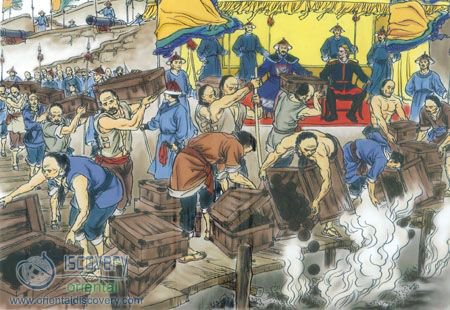
The “Golden” British Past
In London, however, these pleas fell on deaf ears, as the profits of British drug traffickers took precedence. Under the guise of “free trade,” the British government launched the first opium war against China in 1839 to force the complete opening of Chinese markets to British drug traffickers. In 1842, a senior British official wrote: “The poor Chinese had two choices, either they must submit to be poisoned, or must be massacred by the thousands” for supporting their own laws in their own land! China’s economic world power, which lasted for hundreds of years, was thoroughly destroyed by the British and other foreign powers.
Perhaps the British prime minister is as oblivious to history as other Western politicians and media figures? Otherwise, he might show a little more restraint toward China.
India, also a victim of the British Empire, fared no better than China: India’s share of the world economy was 23% when the British came, and when the British left, it was only 4%. Moreover, at the end of British colonial rule, 90% of the population lived below the poverty line, and life expectancy was just 27 years. The literacy rate in the British colony was less than 17%. Expenditures from kindergarten to university were less than half of New York State’s school budget.
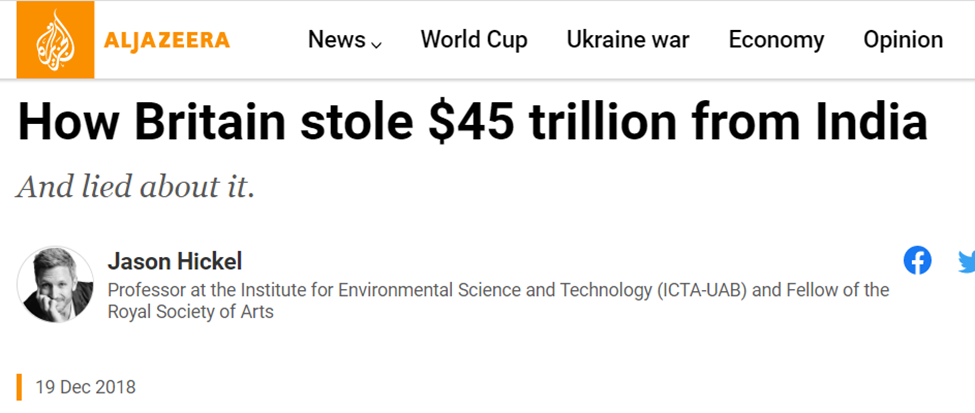
India was completely ruled in favor of Great Britain. Britain’s industrial revolution was based in part on the de-industrialization of India. For example, the millennia-old, world-famous Indian clothing industry, whose products were already valued by the women of the Roman Empire, was replaced by an industry on British soil.
World’s Worst Genocide
Scholarly research shows that British colonialism killed more than 100 million Indians in 40 years. Between 1880 to 1920, British colonial policies in India claimed more lives than all famines in the Soviet Union, Maoist China and North Korea combined.
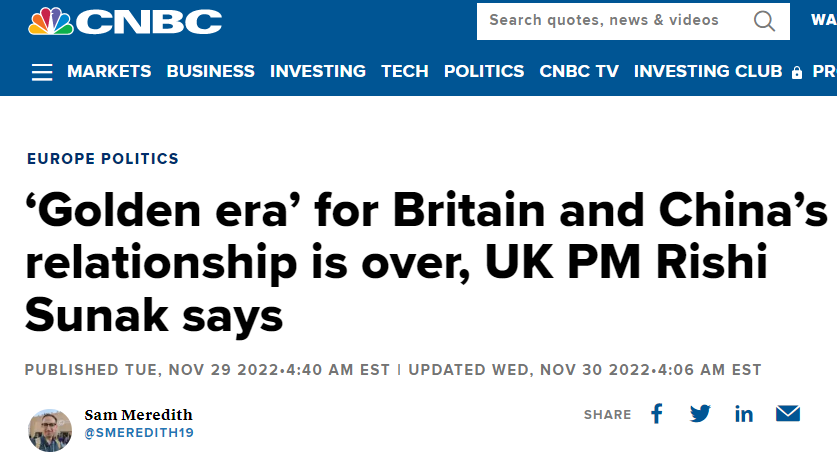
Yet Britain did not pay a cent in reparations and did not even apologize to China and India. And not without irony, Prime Minister Sunak declared a few days ago that the “golden era” of relations between Great Britain and China is over. In view of the “golden” past, which only applies to the British, this admission comes a bit late, however.

CovertAction Magazine is made possible by subscriptions, orders and donations from readers like you.
Blow the Whistle on U.S. Imperialism
Click the whistle and donate
When you donate to CovertAction Magazine, you are supporting investigative journalism. Your contributions go directly to supporting the development, production, editing, and dissemination of the Magazine.
CovertAction Magazine does not receive corporate or government sponsorship. Yet, we hold a steadfast commitment to providing compensation for writers, editorial and technical support. Your support helps facilitate this compensation as well as increase the caliber of this work.
Please make a donation by clicking on the donate logo above and enter the amount and your credit or debit card information.
CovertAction Institute, Inc. (CAI) is a 501(c)(3) non-profit organization and your gift is tax-deductible for federal income purposes. CAI’s tax-exempt ID number is 87-2461683.
We sincerely thank you for your support.
Disclaimer: The contents of this article are the sole responsibility of the author(s). CovertAction Institute, Inc. (CAI), including its Board of Directors (BD), Editorial Board (EB), Advisory Board (AB), staff, volunteers and its projects (including CovertAction Magazine) are not responsible for any inaccurate or incorrect statement in this article. This article also does not necessarily represent the views the BD, the EB, the AB, staff, volunteers, or any members of its projects.
Differing viewpoints: CAM publishes articles with differing viewpoints in an effort to nurture vibrant debate and thoughtful critical analysis. Feel free to comment on the articles in the comment section and/or send your letters to the Editors, which we will publish in the Letters column.
Copyrighted Material: This web site may contain copyrighted material the use of which has not always been specifically authorized by the copyright owner. As a not-for-profit charitable organization incorporated in the State of New York, we are making such material available in an effort to advance the understanding of humanity’s problems and hopefully to help find solutions for those problems. We believe this constitutes a ‘fair use’ of any such copyrighted material as provided for in section 107 of the US Copyright Law. You can read more about ‘fair use’ and US Copyright Law at the Legal Information Institute of Cornell Law School.
Republishing: CovertAction Magazine (CAM) grants permission to cross-post CAM articles on not-for-profit community internet sites as long as the source is acknowledged together with a hyperlink to the original CovertAction Magazine article. Also, kindly let us know at info@CovertActionMagazine.com. For publication of CAM articles in print or other forms including commercial internet sites, contact: info@CovertActionMagazine.com.
By using this site, you agree to these terms above.
About the Author
Felix Abt is the author of “A Capitalist in North Korea: My Seven Years in the Hermit Kingdom” and of “A Land of Prison Camps, Starving Slaves and Nuclear Bombs?”
He can be reached via his Twitter account.

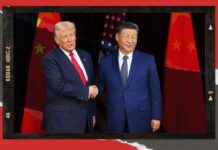




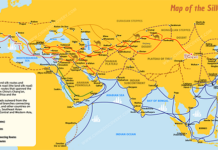


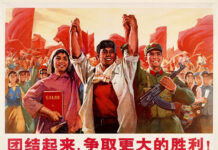

[…] Shameless Hypocrisy: West Shows Solidarity with Chinese Protesters While it Conceals.. by Felix Abt […]